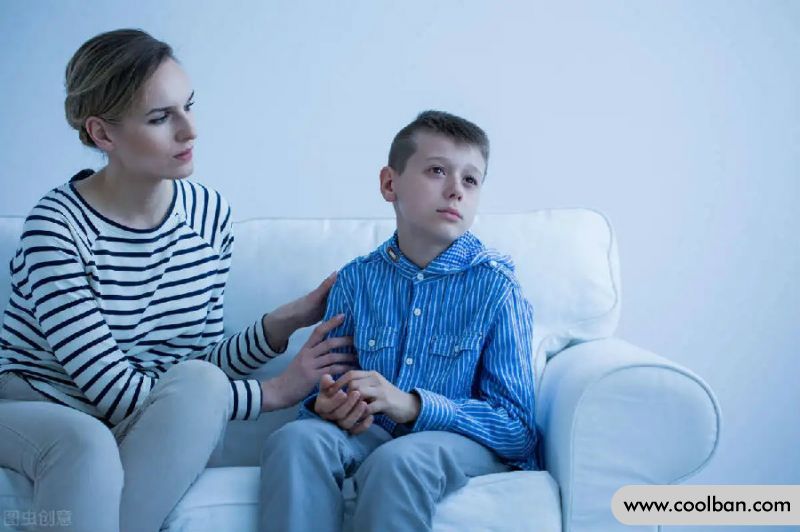What are the myths about autism?
2022-04-29
With the advancement of media reports, film and television and public welfare activities, the word "autism" has gradually entered people's field of vision and is well known to everyone. But most people seem to have a superficial understanding of "autism." For example, they have two extreme views on autism: they are either geniuses or mentally retarded, and even some online circles often use "I am autistic" to refer to their depression and low mood... These "misunderstandings" not only make Patients are more difficult to understand and accept, which also makes it more difficult for them to integrate into the social group.
Today, we will correct common misunderstandings about autism from three directions: the definition, clinical manifestations and intervention treatment of autism, and hope that everyone can have a correct understanding of autism.
Definition of autism:
Autism, also known as autism spectrum disorder, is a collective term for disorders caused by neurological disorders. In 2013, the American Psychiatric Association released the fifth edition of the Diagnostic Manual of Disorders. exist In DSM-5, all autism disorders are combined into one diagnosis, autism spectrum disorder (ASD), including past classic autism, Asperger's, PDD-NOS and childhood disintegrative disorder, while Rett syndrome no longer falls under the umbrella of autism for different etiologies.

Through the introduction, I believe that everyone has a certain understanding of the definition of autism, let's take a look at the public's understanding.
Myth 1: Is autism a mental illness?
The truth: When many people hear the word "autism", they will think of mental disorders, thinking that children with autism are mental illnesses stimulated by some external environment. But in reality, autism is a neurodevelopmental disorder, not a purely psychological one.
Myth 2: Is autism caused by improper parenting?
The truth: The child has autism, so many parents are labeled as "refrigerator mother". In fact, such a statement is not accepted. So far, the etiology is unclear, but most studies believe that it is related to heredity or genetic abnormality, and has no direct relationship with acquired family upbringing.

Myth 3: Are autistic people geniuses?
The truth: Many people think that patients are geniuses like the piano prodigy Drake in Rain Man and Raymond with a super memory, but in reality, only a few patients show some aspect of having Talents beyond ordinary people, such as memory, music, painting, etc., most patients belong to ordinary people.
Clinical manifestations: Patients with autism mainly have three core symptoms: social interaction disorder, communication disorder, and narrow interests. In addition to core symptoms, there are some non-core symptoms such as: paresthesias, emotional tension, marked hyperactivity, and distraction.
After reading the clinical manifestations, do you have any insight? So what do people with autism look like in the eyes of the public? let's see!
Myth 4: People with autism can't speak?
Truth: It's not that children with autism can't speak, it's that their language barriers and lack of willingness to actively communicate make it difficult for them to communicate with others. However, most patients can improve their language barriers with acquired interventions. Even if some children still lag in language after intervention, they can master communication skills by learning functional communication methods such as sign language and dialogue boards.

Misunderstanding 5: Are autistic people prone to violence?
Truth: Some people with autism behave violently, but not out of malice. They bite, hit, spit, and other aggressive behaviors to satisfy specific sensory needs, and these behaviors are directed only at themselves, not at others. Therefore, the vast majority of patients are kind and lovely.
Myth 6: All autistic patients have the same symptoms?
Truth: Most patients will have the three core symptoms of autism, but not all patients will have these symptoms, some patients may only show non-core symptoms, so the symptoms of autism patients vary very large.
Intervention and treatment of autism: At present, the biomedical field has not yet provided a clear etiological conclusion and targeted drug therapy for autism. Therefore, educational intervention and rehabilitation therapy are the main ways to improve the ability development of patients. Intervention methods such as behavior analysis therapy, sensory integration training method and structured education therapy are of great help to the patient's rehabilitation.
The recovery of autism requires long-term persistence to have significant improvement, but the public seems to have a lot of misconceptions about the recovery of patients.

Misunderstanding 7: Will the child grow up to be autistic?
The truth: Many people often say that "children with autism will get better when they grow up", but in fact, such a statement is purely comforting. In fact, professional help should be sought as soon as it is discovered that a child has autism. Waiting will only cost you valuable time for timely intervention and treatment for your child.
Misunderstanding 8: Can I get better after taking medicine?
The truth: Most people think that children with autism can be cured with medication, but so far there is no cure for autism. Although doctors sometimes prescribe medications, they only target certain symptoms, such as anxiety, impulsive-aggressive behavior, and appetite and sleep disturbances.
Misunderstanding 9: Can autism be cured completely?
Truth: At present, there is no complete cure for autism, and only long-term intervention and rehabilitation training can improve children's symptoms. Most patients can integrate into the society and live independently after a series of rehabilitation training such as self-care, emotional management, and language expression.
Today, we will correct common misunderstandings about autism from three directions: the definition, clinical manifestations and intervention treatment of autism, and hope that everyone can have a correct understanding of autism.
Definition of autism:
Autism, also known as autism spectrum disorder, is a collective term for disorders caused by neurological disorders. In 2013, the American Psychiatric Association released the fifth edition of the Diagnostic Manual of Disorders. exist In DSM-5, all autism disorders are combined into one diagnosis, autism spectrum disorder (ASD), including past classic autism, Asperger's, PDD-NOS and childhood disintegrative disorder, while Rett syndrome no longer falls under the umbrella of autism for different etiologies.

Through the introduction, I believe that everyone has a certain understanding of the definition of autism, let's take a look at the public's understanding.
Myth 1: Is autism a mental illness?
The truth: When many people hear the word "autism", they will think of mental disorders, thinking that children with autism are mental illnesses stimulated by some external environment. But in reality, autism is a neurodevelopmental disorder, not a purely psychological one.
Myth 2: Is autism caused by improper parenting?
The truth: The child has autism, so many parents are labeled as "refrigerator mother". In fact, such a statement is not accepted. So far, the etiology is unclear, but most studies believe that it is related to heredity or genetic abnormality, and has no direct relationship with acquired family upbringing.

Myth 3: Are autistic people geniuses?
The truth: Many people think that patients are geniuses like the piano prodigy Drake in Rain Man and Raymond with a super memory, but in reality, only a few patients show some aspect of having Talents beyond ordinary people, such as memory, music, painting, etc., most patients belong to ordinary people.
Clinical manifestations: Patients with autism mainly have three core symptoms: social interaction disorder, communication disorder, and narrow interests. In addition to core symptoms, there are some non-core symptoms such as: paresthesias, emotional tension, marked hyperactivity, and distraction.
After reading the clinical manifestations, do you have any insight? So what do people with autism look like in the eyes of the public? let's see!
Myth 4: People with autism can't speak?
Truth: It's not that children with autism can't speak, it's that their language barriers and lack of willingness to actively communicate make it difficult for them to communicate with others. However, most patients can improve their language barriers with acquired interventions. Even if some children still lag in language after intervention, they can master communication skills by learning functional communication methods such as sign language and dialogue boards.

Misunderstanding 5: Are autistic people prone to violence?
Truth: Some people with autism behave violently, but not out of malice. They bite, hit, spit, and other aggressive behaviors to satisfy specific sensory needs, and these behaviors are directed only at themselves, not at others. Therefore, the vast majority of patients are kind and lovely.
Myth 6: All autistic patients have the same symptoms?
Truth: Most patients will have the three core symptoms of autism, but not all patients will have these symptoms, some patients may only show non-core symptoms, so the symptoms of autism patients vary very large.
Intervention and treatment of autism: At present, the biomedical field has not yet provided a clear etiological conclusion and targeted drug therapy for autism. Therefore, educational intervention and rehabilitation therapy are the main ways to improve the ability development of patients. Intervention methods such as behavior analysis therapy, sensory integration training method and structured education therapy are of great help to the patient's rehabilitation.
The recovery of autism requires long-term persistence to have significant improvement, but the public seems to have a lot of misconceptions about the recovery of patients.

Misunderstanding 7: Will the child grow up to be autistic?
The truth: Many people often say that "children with autism will get better when they grow up", but in fact, such a statement is purely comforting. In fact, professional help should be sought as soon as it is discovered that a child has autism. Waiting will only cost you valuable time for timely intervention and treatment for your child.
Misunderstanding 8: Can I get better after taking medicine?
The truth: Most people think that children with autism can be cured with medication, but so far there is no cure for autism. Although doctors sometimes prescribe medications, they only target certain symptoms, such as anxiety, impulsive-aggressive behavior, and appetite and sleep disturbances.
Misunderstanding 9: Can autism be cured completely?
Truth: At present, there is no complete cure for autism, and only long-term intervention and rehabilitation training can improve children's symptoms. Most patients can integrate into the society and live independently after a series of rehabilitation training such as self-care, emotional management, and language expression.
